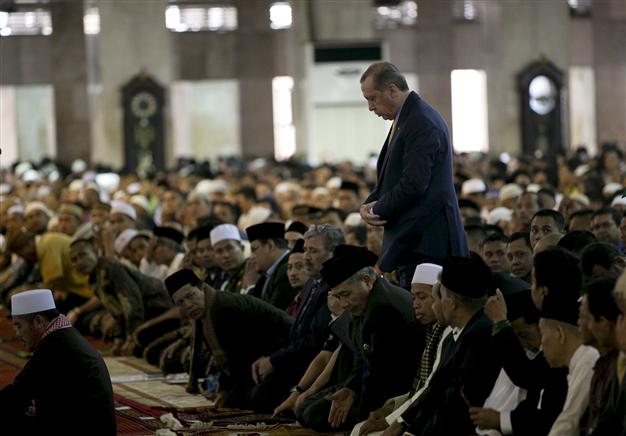William Armstrong
william.armstrong@hdn.com.tr
‘National and State Identity in Turkey: The Transformation of the Republic’s Status in the International System’ by Toni Alaranta (Rowman, 192 pages, $75)
The title of this book by Finnish academic Toni Alaranta may be very dull, but its content is tightly argued and full of food for thought. Its argument is powerful: The ascendance of the populist Islamist movement that still dominates Turkey’s politics was crucially aided by the post-Cold War, post-9/11 international political landscape, favorable economic headwinds, and the overwhelming academic trend of postmodern relativism. Backed by a formidable bibliography, Alaranta shows how for the Justice and Development Party (AKP) and now-President Recep Tayyip Erdoğan, a tale of democratization and liberalization at home and abroad conveniently masked a crude power-grab. The result is the authoritarian and paranoid state we see today.

The interpretation abroad largely disregarded Turkey’s domestic political context. In Alaranta’s dense but accurate phrasing, “The discourse of ‘normalization’ and of Turkey’s Islamic identity being ‘natural’ only obstructs us from observing how the current Islamic identification in the context of globalization is the result of an intentional political articulation conducted by specific groups working within an equally specific context.” According to the book, political Islam in Turkey is based on a series of tendentious, ideologically motivated half-truths, which inevitably lead to repressive majoritarian populism based on religious-cultural essentialism. “The Islamic movement’s ability to conquer the state is seen as a reconquest,” the author writes, “a project within which the true Muslim Turkish nation reestablished its sovereignty after the artificial, ‘alien’ Westernizers.” That implies something quite different to the “normalization” and “liberalization” once cherished by the common outside narrative.
Despite the far more ambiguous reality, Islamists see Turkey’s modern history as little more than a series of defeats at the hands of Kemalist westernizers who are said to have humiliated the country’s devout Muslims. Assisted by naïve outside observers, the superficial but powerful narrative trope of Kemalist secularists oppressing the “true nation” of pious Muslims became embedded in the universal language of liberal democracy, individual freedoms, and human rights. But Islamic-conservative ideology in Turkey actually has more in common with right-wing populism elsewhere in Europe, consolidated on a series of demonized “others.” As Alaranta writes,
The ideological, emotionally and intellectually compelling narrative of devout Muslims – the ‘real nation’ – being liberated from the oppressive rule of the westernizing-secularizing domestic ‘other’ is a crucial component explaining the AKP constituency’s existence in its current form … Turkey’s own republican history has become the domestic ‘other’ of the Muslim nationalist self.
Affirming the legitimate rights of its internal secularist adversary is anathema for political Islam in Turkey, as it “would mean abandoning one of its most effective tools of mobilization – namely, the narrative of Kemalist modernizers repressing devout Muslims.” If not for that ideological factor, “the AKP would be nothing more than a neoliberal center-right party representing big business.”
All this is true to an extent. But a problem with the book’s thesis is that it is rather one-handed. Alaranta is always willing to give Turkish secularists the benefit of the doubt, and always judging Islamists by a higher bar. His criticism of contemporary political Islam is astute, but he should weigh the murky heritage of Kemalism rather more heavily. Both have plenty of things in the closet to be ashamed of. The “Kemalist state” of undemocratic vested interests may have been far from the omnipotent evil that Turkey’s Islamists imagine, but it was a more substantial reality than Alaranta is willing to admit.
Still, while Alaranta should sharpen his critique of Kemalism, it is also clear that the few remaining liberal apologists for the AKP need to sharpen their own defense. The fact they seemingly cannot would suggest they have already lost the argument.

